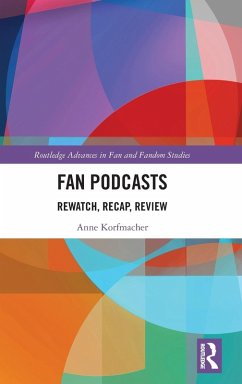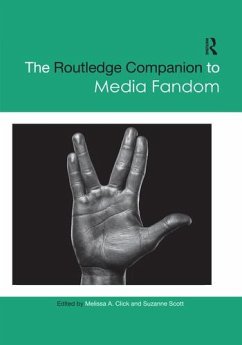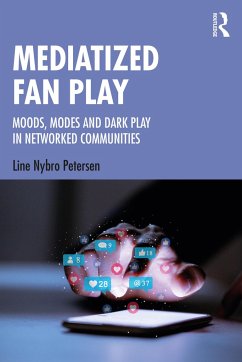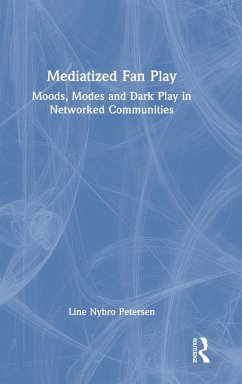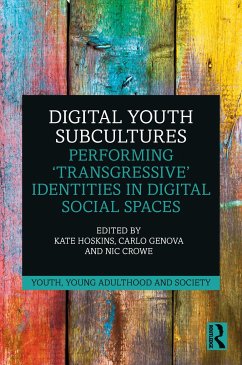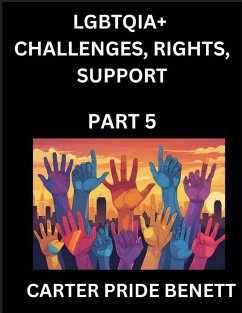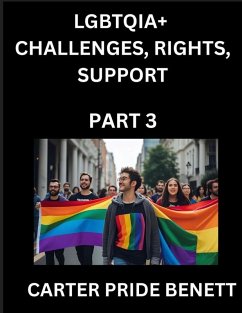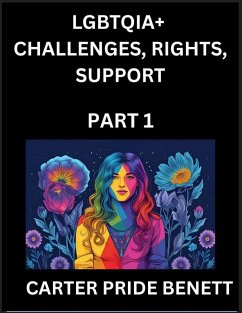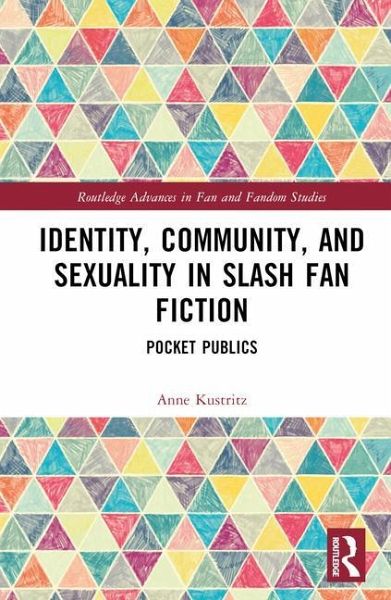
Identity, Community, and Sexuality in Slash Fan Fiction
Pocket Publics
Versandkostenfrei!
Versandfertig in 6-10 Tagen
154,99 €
inkl. MwSt.
Weitere Ausgaben:

PAYBACK Punkte
77 °P sammeln!
This book explores slash fan fiction communities during the pivotal years of the late 1990s and early 2000s as the practice transitioned from print to digital circulation.Delving into over ten years of online and in-person ethnography, the book offers an in-depth examination of slash fan fiction - original stories written by and circulated within female-centered communities about same-sex characters borrowed from previously published sources - to document the history of a feminist, queer media subculture whose infrastructure, creativity, and ways of life are often obscured in dominant historie...
This book explores slash fan fiction communities during the pivotal years of the late 1990s and early 2000s as the practice transitioned from print to digital circulation.
Delving into over ten years of online and in-person ethnography, the book offers an in-depth examination of slash fan fiction - original stories written by and circulated within female-centered communities about same-sex characters borrowed from previously published sources - to document the history of a feminist, queer media subculture whose infrastructure, creativity, and ways of life are often obscured in dominant histories of the internet's development and by the contemporary focus on industry-friendly but often misogynist digital fan subcultures. Arguing that online slash communities created an alternate public space that provided opportunities for unanticipated encounters with a wide range of complex sexual, relational, and political practices, the book contends that slash thereby added to readers' tools for experiencing and thinking about pleasure and ways of living by forming a "pocket public," that is a digital space public enough to be found and protected enough to shield participants from harassment and censorship.
This insightful and comprehensive study will interest students and scholars working in the areas of media studies, literary studies, anthropology, new media, audience communities, convergence culture, fan studies, women's studies, and queer studies.
Introduction of this book is freely available as a downloadable Open Access PDF at http://www.taylorfrancis.com under a Creative Commons [Attribution-Non Commercial (CC-BY- NC)] license. Funded by Social Sciences and Humanities Research Council of Canada (grant 435-2019-0691).
Delving into over ten years of online and in-person ethnography, the book offers an in-depth examination of slash fan fiction - original stories written by and circulated within female-centered communities about same-sex characters borrowed from previously published sources - to document the history of a feminist, queer media subculture whose infrastructure, creativity, and ways of life are often obscured in dominant histories of the internet's development and by the contemporary focus on industry-friendly but often misogynist digital fan subcultures. Arguing that online slash communities created an alternate public space that provided opportunities for unanticipated encounters with a wide range of complex sexual, relational, and political practices, the book contends that slash thereby added to readers' tools for experiencing and thinking about pleasure and ways of living by forming a "pocket public," that is a digital space public enough to be found and protected enough to shield participants from harassment and censorship.
This insightful and comprehensive study will interest students and scholars working in the areas of media studies, literary studies, anthropology, new media, audience communities, convergence culture, fan studies, women's studies, and queer studies.
Introduction of this book is freely available as a downloadable Open Access PDF at http://www.taylorfrancis.com under a Creative Commons [Attribution-Non Commercial (CC-BY- NC)] license. Funded by Social Sciences and Humanities Research Council of Canada (grant 435-2019-0691).





